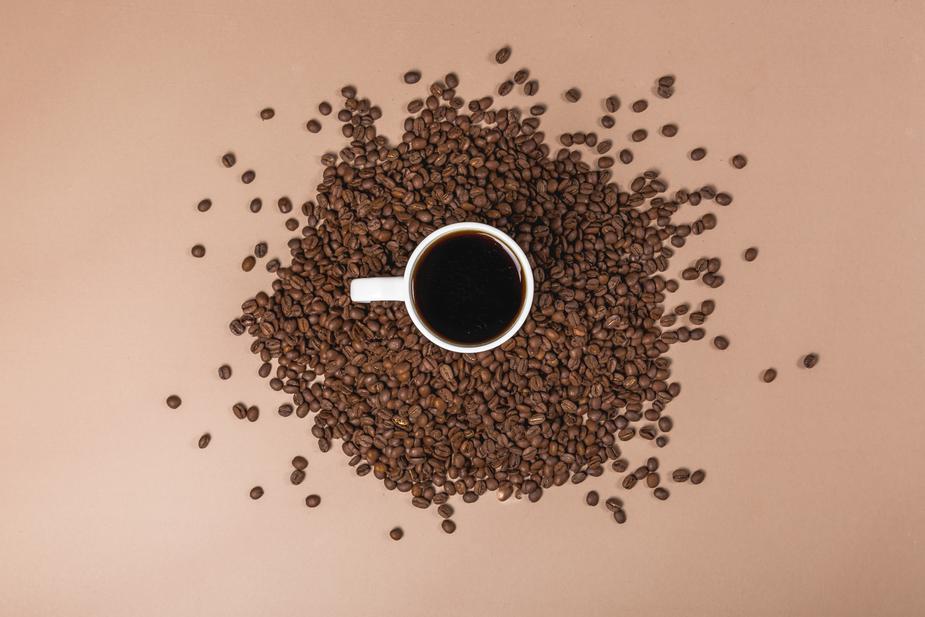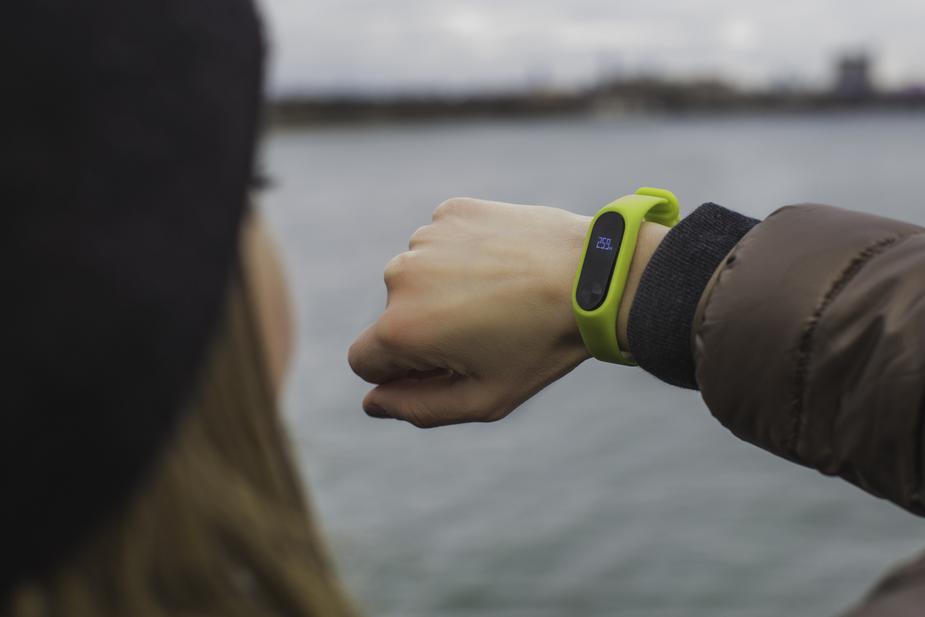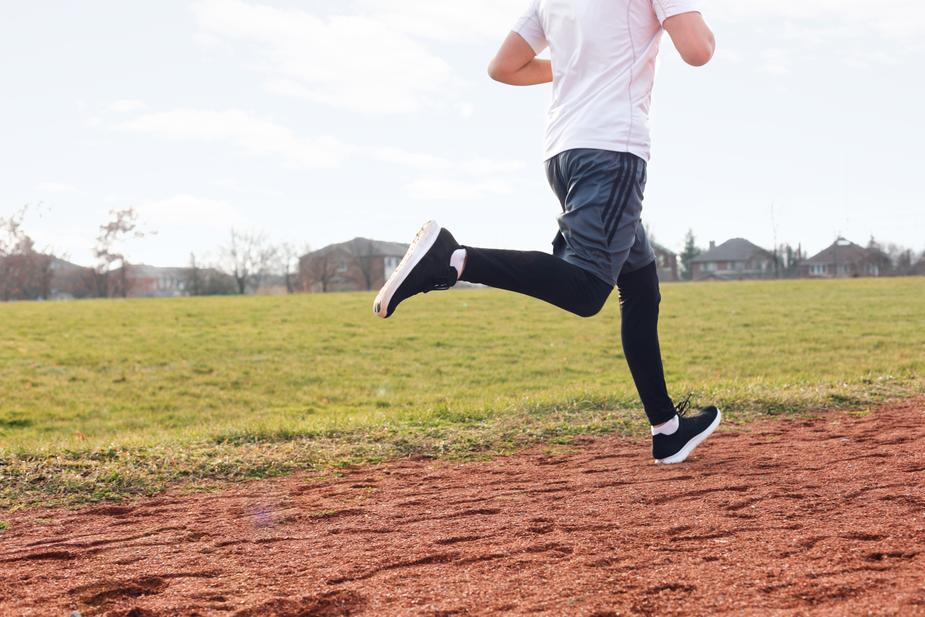Does Caffeine Enhance Athletic Performance?

Written By Oliver: BSc(Hons). Applied Sport & Exercise Science.
Caffeine is the world’s most popular drug, it is found in drinks such as tea, and coffee but is also naturally occurring in chocolate.
It’s also marketed heavily for use as an ergogenic aid to fuel activity. This could be for those looking to drive late into the night, work long hours, play on their games consoles, or train harder in the gym. But, does it really offer any tangible performance benefit? Read on to find out.
This article will cover the following:
- What is caffeine?
- Components of fitness
- Caffeine and rugby
- Middle distance running
- Muscular strength
- Tolerance
- Cycling performance
- Team sports
- Conclusion
What is Caffeine?

Caffeine is a legal ergogenic aid (Ali et al, 2016). An ergogenic aid is a substance that improves the performance of an individual whilst competing or in training and there are some that are illegal and legal.
Caffeine in the short term enhances intense sports performance lasting 4-10 minutes (Stuart et al, 2005). The positive effects of caffeine are that it enhances performance is by attenuating fatigue (Stuart et al., 2005). Also, mobilize plasma-free fatty acids by sparing muscle glycogen (Stuart et al., 2005), this is done by the central nervous system which releases calcium that in turn aids the contraction of the muscles.
Improved concentration levels and lessened perceptions of effort are both positive effects of caffeine (Peeling and Dawson, 2007). Although, this review is looking at the immediate responses of caffeine on short-duration high-intensity sports performance and if it improves performance in a substantial way.
Caffeine does also affect endurance sports as a previous study stated that enhancement in performance of a 1-hour cycling time trial after caffeine was ingested (Cox et al, 2002). From this, it is easy to see that caffeine should have a positive effect on all sports performance, which is why another aim of this review is to see what if any negative effects of caffeine supplementation on short-duration sports performance.
Components of Fitness

Having good speed is important in any type of sports performance; this is because there are many different situations where athletes need to change direction (Young et al, 2002) and still be able to keep running at high speeds, for instance when a ball changes direction in a rugby game.
However, in a different state of affairs athletes may need to run in a straight line to either win a race or to chase a ball. Therefore, athletes may take into consideration using caffeine supplementation to help increase speed and perform at a higher level.
Caffeine and Rugby
Stuart et al., (2005) presented a study to examine the effects of caffeine supplementation (6mg-kg-1 body mass) on 9 male competitive rugby players. the testing design was a double-blind randomized cross-over design so that the subjects wouldn’t know if they were under the influence of the caffeine supplement.
The 9 subjects underwent 14 circuits in two 7 circuit halves with a 10-minute rest in between. The key finding that Stuart (2005) found was that after caffeine ingestion 30m sprint speed times decreased with a mean change of 2.3%, which is an absolute change in performance by >0.8%. Also, passing accuracy increased with a mean change of 9.6%, this shows coordination and concentration both have improved under the influence of caffeine. The results obtained suggest that caffeine supplementation produces a positive effect on speed performance, coordination, and concentration.
Although, the testing was only based on 9 male subjects, so it could be argued that it is not generalized to the whole population, which is a big limitation of this study as females may perform differently in this situation. Also, only 9 subjects were used which limits the study’s reliability.
Muscular endurance is important in sports that repeatedly use the same muscle group over a long period of time, this would be useful sports like football or long-distance running as the competition lasts for a long period of time.
Middle Distance Running

Wiles et al., (1992) conducted a study to observe the effects of caffeine supplementation (3g) on eighteen male middle distance athletes or physically fit sport science students with ages ranging from 18 to 29 (mean 21.8). The test design was an experimental double-blind placebo. The first protocol tested was a 1500m time trial where all eighteen subjects participated. From this testing, the results showed that there was a significant between the caffeine and placebo group of p<0.005, also the mean times for the 1500m were 4.2s faster after the ingestion of the caffeine supplement.
The results for protocol 1 show’s that a caffeine supplement has a positive effect on mid-range high-intensity exercise, this is due to the enhancement of oxygen uptake. Protocol 2 was the same design as protocol 1 except the final 400m would be a sprint and only ten subjects participated.
The testing revealed that all ten subjects submitted faster times, a variance test was used to show a significant difference of p<0.6. The results of protocol 2 were affected by the rate of perceived exertion (RPE) of the intensity of the exercise, also they were affected by a reduction in fatigue.
These are two positive effects of caffeine and suggest why the running times were faster for both protocols covered. This is supported by Stuart et al., (2005) study where sprint speed times were also improved under the influence of caffeine.
The limitation of this testing is that, again, only male subjects were used, this is a limitation as females may react differently to caffeine and change the course of the results. However, a strength of this study compared to the Stuart et al., (2005) study is that more subjects were used which makes this study more reliable.
Muscular Strength
Muscular strength can be important in a wide range of sports stretching from water polo to weight lifting. Muscular strength is the force one exerts against resistance and could be used in football when goalkeepers kick the ball.
Hudson et al., (2008) performed a study on the effects of caffeine supplementation on resistance training. The testing method was an experimental double-blind placebo design.
To help conduct this study he used 15 male subjects with a mean age of 22 who ingested a caffeine supplement of 6-6.4mg.kg-1body mass. Arm curls and leg extensions were used for the testing as they are popular among athletes. For the leg extensions, there was a significant difference between the total number of repetitions completed with caffeine ingestion p<0.05.
Hudson et al., 2008, p.1952 show that for all four sets caffeine had a positive effect as more repetitions are completed under the influence of caffeine. This is due to the muscles not being as fatigued, so they can lift more for longer.
Leg Extensions
During the leg extensions, testing RPE was taken (figure 3, Hudson et al., 2008, p.1953) using a borg scale, even though there is no significant difference; under the influence, the caffeine rate of perceived exertion is shown to be lower.
Arm Curls
The seated arm curls results showed that there was nearly a significant difference of p<0.051 in repetitions compared to the placebo. This shows that caffeine supplementation does improve muscular strength and also endurance as to complete more repetitions there is a need for increased muscular endurance.
This is supported by Wiles et al., (1992) as in his testing caffeine improves muscular endurance in the legs to improve on 1500m times, these two studies support the notion that caffeine supplementation does increase sports performance.
Caffeine Tolerance
The negative effects of the caffeine supplement were taken at the end of testing and as shown in figure 6 (Hudson et al., 2008, p.1954) the subjects had higher fatigue, nervousness, restlessness, tremors, and stomach distress. These negative effects are the opposite of what the previous studies have shown as they have only highlighted the good aspects of caffeine supplementation.
These negative effects could be due to the dosage of caffeine. A recurring theme in all the studies covered so far is that only male subjects are used, which means the results of the testing can only relate to males and not the general public. A strength of this study is that RPE was taken throughout testing, which shows how hard subjects are working and to see if caffeine does decrease the perception of effort.
Cycling Performance

Wiles et al., (2005) conducted a study on the effects of caffeine supplementation on cycling speed and power. Speed and power are both key aspects of cycling, by having either of these two components improve could be the difference between a podium finish or not.
Eight trained male cyclists (mean ± s: age 32 ± 6 years) underwent a double-blind placebo test where the subjects ingested 5mg kg-1of dissolved caffeine. All eight subjects then performed a maximal 1km sprint time trial on an SRM Ergo bike.
The results of the testing showed that seven of the eight subjects improved cycling performance time with a significant difference of p<0.02, this represented a 3.1% (2.3s) improvement compared to the placebo trial.
Mean power also increased in seven of the eight cyclists with the ingestion of caffeine p<0.007, which represents a 3.6% (18.1 W) increase in mean power. The peak power of the subjects was increased but again in only seven of the eight subjects with a difference of p<0.027 (75.5 W), which is an 8.8% increase.
From this testing, it is easy to see the positive effects caffeine supplementation has on high-intensity short-duration sports performance with cycling time, mean power, and peak power all being improved.
This is a big strength of this analysis as it assessed what needed to be examined and showed the positive effects of the form of analysis. The limitation of the study was that only male subjects were used so these effects of caffeine may not apply to females.
Similarly, Schneiker et al., (2006) performed a study on the effects of caffeine supplementation intermittent sprint ability on cyclists.
Team Sports
There were ten amateur team-sport athlete subjects used (age 20 ± 3 years) who took part in experimental double-blind placebo-controlled design testing.
The subjects ingested a caffeine supplement (6mg-kg-1 body mass). All ten subjects completed the testing which consisted of 2 x 36-minute halves, each composed of 18 x 4s sprints with a 2-minute recovery.
The results showed that in both halves of the testing the amount of work performed was increased by 8.5% with a significant difference of p<0.05.
This is because of the positive effects that caffeine has on the body, for example; caffeine reduces fatigue and aids the contraction of muscles which is why more work was performed. This is supported by Wiles (2005) as in his analysis the eight cyclists also improved on the amount of work that was completed.
Also, peak power was improved in sprint times 7% p<0.01, which is also supported by Wiles (2005) because during his testing peak power was increased by the cyclist. As in the rest of these articles, a big limitation is that only females are used so it cannot be generalized to the whole population.
A key strength is that it shows that key aspects of cycling are improved by caffeine supplementation. Finally, the study revealed that acute caffeine effects enhanced prolonged performance and intermittent sprint ability in males.
Conclusion
The main aim of this review was to investigate the effects of immediate responses to caffeine on short-duration high-intensity sports performance.
This review helped to meet the main aim as caffeine has many different effects on all kinds of sports performance ranging from weight lifting to cycling performance. The main reason that sports performance is improved is that caffeine reduces fatigue which means athletes can perform for longer at a high intensity.
This is supported by all the articles that have been reviewed apart from Hudson 2008 that found caffeine did in fact increase fatigue but did find muscular strength is improved.
Fatigue also links to RPE, this could be why RPE is lessoned (Hudson 2008) because fatigued is reduced so the athlete isn’t working as hard.
Negative effects of caffeine were also found by Hudson (2008) with the likes of nervousness, restlessness, tremors, and stomach distress, this came as a surprise but with all the positive effects there must be some negative effects.
A limitation of this review which was seen in every article analysed was that only male subjects were used so these reviews can only relate to the effects of caffeine on male sports performance.
To improve the analysis, testing would need to be performed among female athletes so the results can be generalized to the whole population.
Overall, caffeine supplementation is a useful way to improve short-duration and high-intensity sports performance.
Caffeine could be recommended as legal ergogenic aids to anyone who wants to improve sports performance with careful consideration to the doses in order to avoid any negative effects.

References
Ajmol Ali, Jemma O’Donnell1, Andrew Foskett1, and Kay Rutherfurd-Markwick2. The influence of caffeine ingestion on strength and power performance in female team-sport players, Journal of the International Society of Sports Nutrition 2016 13:46. Available at: https://pubmed.ncbi.nlm.nih.gov/27980499/
M. Doherty and P. M. Smith. Effects of caffeine ingestion on rating of perceived exertion during and after exercise: a meta‐analysis, Scandinavian Journal of Medicine & Science in Sports Volume 15, Issue 2 March 2005.
GENE R. STUART’, WILL G. HOPKINS’, CHRISTIAN COOK , and SIMEON P. CAIRNS. Muliple Effects of Caffeine on Simulated High-intensity Team-Sport Performance, Medicine & Science in Sports & Exercise. 37(11):1998-2005, NOV 2005. Available at: https://pubmed.ncbi.nlm.nih.gov/16286872/
GREGORY R. COX, BEN DESBROW, PAUL G. MONTGOMERY, MEGAN E. ANDERSON, CLINTON R. BRUCE, THEODORE A. MACRIDES, DAVID T. MARTIN, ANGELA MOQUIN, ALAN ROBERTS, JOHN A. HAWLEY, AND LOUISE M. BURKE. Effect of different protocols of caffeine intake on metabolism and endurance performance, Journal of Applied Physiology Vol. 93, No. 3 2002.
Hudson, Geoffrey M; Green, J Matt; Bishop, Phillip A; Richardson, Mark T. Effects of Caffeine and Aspirin on Light Resistance Training Performance, Perceived Exertion, and Pain Perception, Journal of Strength and Conditioning Research, November 2008 – Volume 22 – Issue 6 – p 1950-1957.
Jonathan D. Wiles , Damian Coleman , Michael Tegerdine & Ian L. Swaine. The effects of caffeine ingestion on performance time, speed and power during a laboratory-based 1 km cycling time-trial, Journal of Sports Sciences Volume 24, 2006 – Issue 11 pages 1165-1171.
J D Wiles, S R Bird, J Hopkins, M Riley. Effect of caffeinated coffee on running speed, respiratory factors, blood lactate and perceived exertion during 1500-m treadmill running, British Journal of Sports Medicine 1992;26:116-120. Available at: https://repository.canterbury.ac.uk/item/85×33/effect-of-caffeinated-coffee-on-running-speed-respiratory-factors-blood-lactate-and-perceived-exertion-during-1500-m-treadmill-running
KNUT THOMAS SCHNEIKER, DAVID BISHOP, BRIAN DAWSON and LAURENCE PETER HACKETT. Effects of Caffeine on Prolonged Intermittent-Sprint Ability in Team-Sport Athletes, Medicine & Science in Sports & Exercise. 38(3):578-585, MAR 2006. Available at: https://research-repository.uwa.edu.au/en/publications/effects-of-caffeine-on-prolonged-intermittent-sprint-ability-in-t
Peter Peeling and Brian Dawson. Influence of caffeine ingestion on perceived mood states, concentration, and arousal levels during a 75-min university lecture, Advances in Physiology Education • VOL 31 • DECEMBER 2007.W. Available at: https://journals.physiology.org/doi/full/10.1152/advan.00003.2007
W.B. Young, R. James, I. Montgomery.Is muscle power related to running speed with changes of direction? journal of Sports Medicine and Physical Fitness; Sep 2002; 42, 3; Health & Medical Complete pg. 282. Available at: https://pubmed.ncbi.nlm.nih.gov/12094116/


